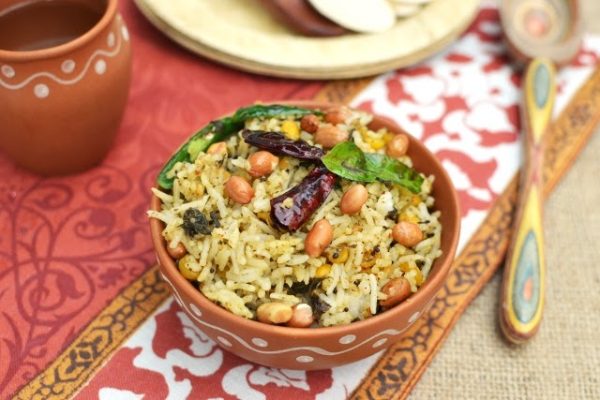Ugadi Festival Recipes
Gongura Pulihora | Ugadi Special
Gongura is a green verdant vegetable that is uniquely related to Andhra Pradesh. Also, not without reason. The Telugu individuals venerate Gongura and transform it into yummy dishes with Gongura Pachadi driving the charge. Tart Gongura Pappu is another top pick. Non-veggie lovers utilize Gongura to make Gongura mamsam, Gongura Chicken, and Gongura Royyalu.
Normally, Gongura Pachadi is appreciated by blending a sound spoonful or two of the pachadi with some rice and seasame oil. Be that as it may, on the off chance that you are feeling apathetic and the whole family needs to eat Gongura Pachadi Annam, a more straightforward choice may be to make Gongura Pulihora.
Also, you will soon see why!
Instructions
- Pressure cook the rice with 3 cups of water.
- When the rice is cooked, spread it in a large plate to cool.
- Over medium heat, dry roast the fenugreek seeds till they start to change colour.
- Grind the fenugreek seeds into a fine powder.
- In a wok or kadai, heat 2 tbsp of sesame oil.
- Add two split red chillies and stir-fry for 1 minute.
- Add the gongura leaves and stir-fry till the leaves wilt.
- Set aside the gongura leaves to cool.
- Once the leaves are cool, grind into a smooth paste.
- In a wok or kadai, heat 2 tbsp of sesame oil.
- Add mustard seeds and wait till they splutter.
- Add the udad dal and chana dal.
- Stir fry till the dals are light golden brown.
- Add the peanuts, curry leaves, and 2 split red chillies.
- Stir-fry till the peanuts start to pop.
- Add the gongura paste and mix well.
- Add the roasted fenugreek powder, turmeric, and salt.
- Mix well.
- Add the rice and mix well.
- Serve with papad and/or curd as accompaniment.









